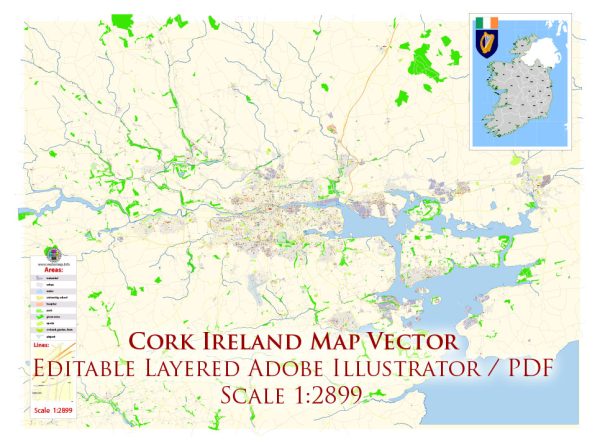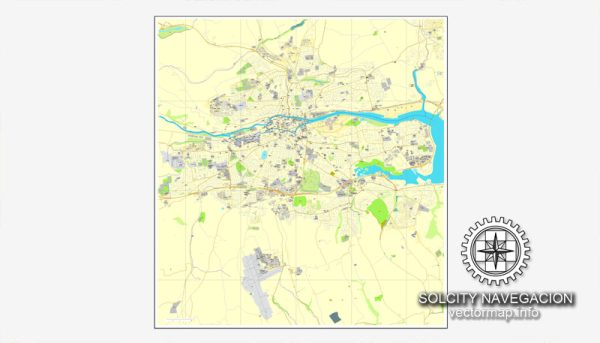Cork, Ireland, has a rich history of urban development that spans centuries. Here is a brief overview of the key historical phases in the city’s development:
- Early History:
- Cork’s history dates back to medieval times when it was founded on an island in the River Lee in the 6th or 7th century by Saint Finbarr.
- The city’s strategic location made it an important trading hub, and it began to grow as a market and trade center.
- Viking and Norman Influence:
- The Vikings established a settlement in the area around the 9th century, contributing to the city’s commercial importance.
- The Normans later took control of Cork in the 12th century, and the city became a center for trade with continental Europe.
- Medieval Cork:
- Cork developed as a medieval walled city, with sections of those walls still visible today.
- The city’s layout reflects its medieval origins, with narrow streets and alleys, some of which still exist in the modern city center.
- Trade and Prosperity:
- By the 17th century, Cork had become a significant port, trading with Britain and continental Europe.
- The city’s prosperity continued to grow in the 18th century, and many elegant Georgian buildings were constructed during this period.
- Industrialization:
- The 19th century brought industrialization to Cork, with the development of breweries, distilleries, and textile industries.
- The city expanded, and new neighborhoods emerged to accommodate the growing population.
- The War of Independence and Civil War:
- Cork played a significant role in the Irish War of Independence (1919-1921) and the subsequent Civil War (1922-1923).
- The city experienced considerable unrest and conflict during this period, leaving a lasting impact on its social and political landscape.
- Post-Independence Era:
- After gaining independence, Cork continued to modernize, and urban development projects expanded the city’s infrastructure.
- The mid to late 20th century saw changes in transportation, housing, and commerce, influencing the city’s layout and character.
- Contemporary Cork:
- Today, Cork is a vibrant city with a mix of historical and modern architecture.
- The city has expanded beyond its original boundaries, with suburbs and new developments catering to the needs of a growing population.
- Urban renewal projects and the preservation of historic sites contribute to Cork’s unique blend of the old and the new.
Throughout its history, Cork’s urban development has been shaped by its maritime location, economic activities, and the influence of various cultures and historical events. The city continues to evolve, embracing both its rich heritage and the demands of the modern era.



 Author: Kirill Shrayber, Ph.D. FRGS
Author: Kirill Shrayber, Ph.D. FRGS